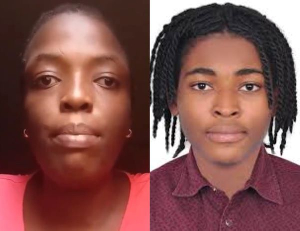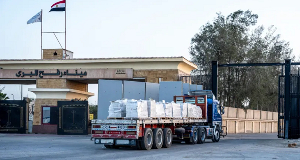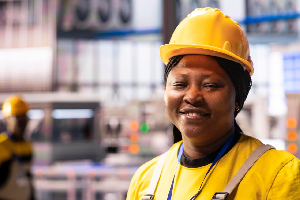Football rivalries give the sport an extra edge; just think Cristiano Ronaldo vs Lionel Messi, Pele vs Diego Maradona or even Patrick Vieira vs Roy Keane.
While debates over who is the greater may sometimes be taken too far by critics or fans of the aforementioned players, it gives the game additional spice and meaning.
In Africa, there’s probably no debate greater than Didier Drogba vs Samuel Eto’o, two contrasting strikers whose impact at home and abroad in the 2000s and early 2010s cannot be understated.
The former was a late bloomer, best known for his pace and power at Olympique Marseille and Chelsea, who possessed an uncanny knack for delivering in the big games. The other was one of the best exports from Cameroon in the last two decades, playing with the very best and thriving in various systems and winning nearly every major trophy for club and country.
When he looks back on his career, the Ivory Coast legend will likely remember a brief encounter with Jose Mourinho in the Stade Velodrome tunnel when Marseille hosted Porto in the 2003-04 Champions League campaign.
The Portuguese coach supposedly praised the frontman and promised to sign him when he had the resources…an assurance he delivered on when he became Chelsea boss.
It was the ex-Porto coach who turned the striker into one of the feared frontmen in Europe, with his ingenious man-management getting the best out of the powerful striker.
While Drogba’s numbers over the course of his career may not have been prolific, and there were also persistent diving accusations thrown at him, there’s a school of thought which believes his impact shouldn’t be measured by numbers alone.
People with this notion tend to look at the frontman’s all-round contributions to Chelsea from 2004 to 2012 which included his defensive input, hold-up play, selflessness and quite impressive assist numbers.
He had the personality and influence to change games without having to score and assist, traits that don’t quite show up on shiny metrics in this day and age.
Still, he scored goals; big goals that helped the Blues win many of their trophies to establish the West London club as one of the leading sides on the continent.
None came bigger than his immaculate display of leadership and cojones in the London side’s 2012 Champions League run which culminated in their first and only winners’ medal to date.
Drogba scored decisive strikes in their final group stage game with Valencia at the Bridge, but added important goals against Napoli, Barcelona and Bayern Munich in the final.
Granted, he rode his luck a little, having conceded penalties in the semi-final and final, but he was probably due some fortune after near misses in previous years and the 2008 final red card against Manchester United.
The major sticking point was his Ivory Coast career which saw him fail to win any international titles, despite having the luxury of the so-called Golden Generation that included the Toure brothers, Kolo and Yaya.
While the two-time African Player of the Year had no title to show for 65 international goals, however, his role in ending a five-year civil war in his country will forever paint him a hero in the eyes of his compatriots.
He netted 168 goals and 86 assists in 381 matches for Chelsea, secured four Premier League titles as well as multiple cup wins in England and successes in Turkey and the United States over the course of his career. 44 UCL goals, 14 more than Eto’o managed, also showed he turned it on European nights, which is absolutely no surprise for someone as clutch as Drogba.
Andres Iniesta and Samuel Eto'o of Barcelona during the UEFA Champions League Final match against Manchester United on May 27, 2009
Eto’o, on the other hand, had the natural talent and did extraordinarily well to live up to his precocious potential. It’s not everyone who gets a chance for a World Cup debut at 17, just over a year after his maiden international appearance as a 15-year-old.
His superiority over Drogba is reflected in the international arena, where he enjoyed success playing for the Indomitable Lions; winning Olympic gold once, and claiming the Africa Cup of Nations on two occasions.
Nobody has more Afcon goals than the former Real Madrid forward (18) and it’s no surprise he’s won double the Ivorian’s Footballer of the Year awards.
Even in club football at Barcelona and Internazionale, the forward claimed two trebles in 2008-09 and 2009-10 – the fourth player in history to achieve the feat – and his tendency to thrive in several tactical schemes highlighted his well-rounded nature. This is an antithesis of Drogba who only thrived as a centre-forward and seldom thrived when paired with another striker.
What made Eto’o extra special wasn’t just his impressive trophy haul, but also his big-game mentality to deliver whenever his sides were in tricky situations.
A pertinent example was in Barcelona’s 2006 Champions League final win over Arsenal, a game the Cameroon star was named Man of the Match. He won the free-kick that led to Jens Lehmann’s early dismissal before netting the equalizer with 15 minutes to play in the Spanish side’s eventual 2-1 victory.
Samuel Eto'o Barcelona
In addition, he scored the opening goal in the 2009 final win over Manchester United too, opening the scoring in the 10th-minute of a 2-0 success, while he showed his selflessness a year later by giving his all in a defensive right wing role as Mourinho’s counter-attacking Inter Milan beat Bayern 2-0.
Besides the aforementioned moments, the ex-Cameroon frontman scored important strikes in the 2000 Afcon final against Nigeria and scored one of the goals in the Olympics final win over Spain to erase a two-goal deficit and force extra-time – the Central African nation were to win on penalties.
Eto’o not only possessed the big-game nous of Drogba, but had the technique and tactical knowledge to feature and thrive in different tactics and formations.
The ex-Barca star scored a goal every two games over the course of his club career (359 goals in 718 games) as opposed to the Ivorian who managed a goal every 2.3 matches (300 goals in 686 appearances). However, the Chelsea legend set up more goals – 122 to 116 – despite playing fewer games and accruing lesser minutes over the course of their careers.
The Ivory Coast legend will probably go down as one of the great African forwards of all time but Eto’o is surely a step above in this rivalry. The Indomitable Lions’ top scorer is not only the greatest ever African striker, but arguably also the best ever to have graced the continent.
Sports News of Monday, 30 March 2020
Source: goal.com













